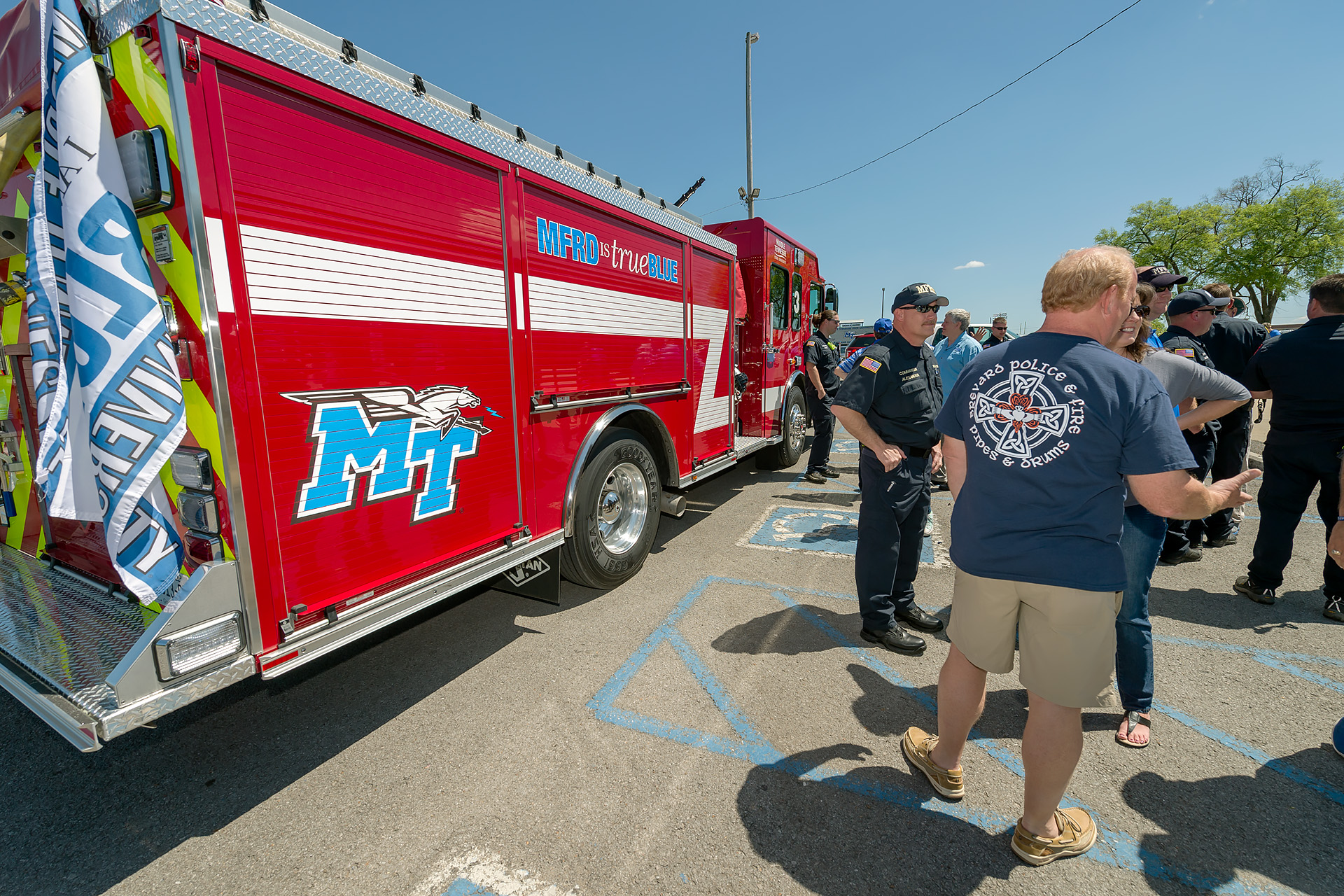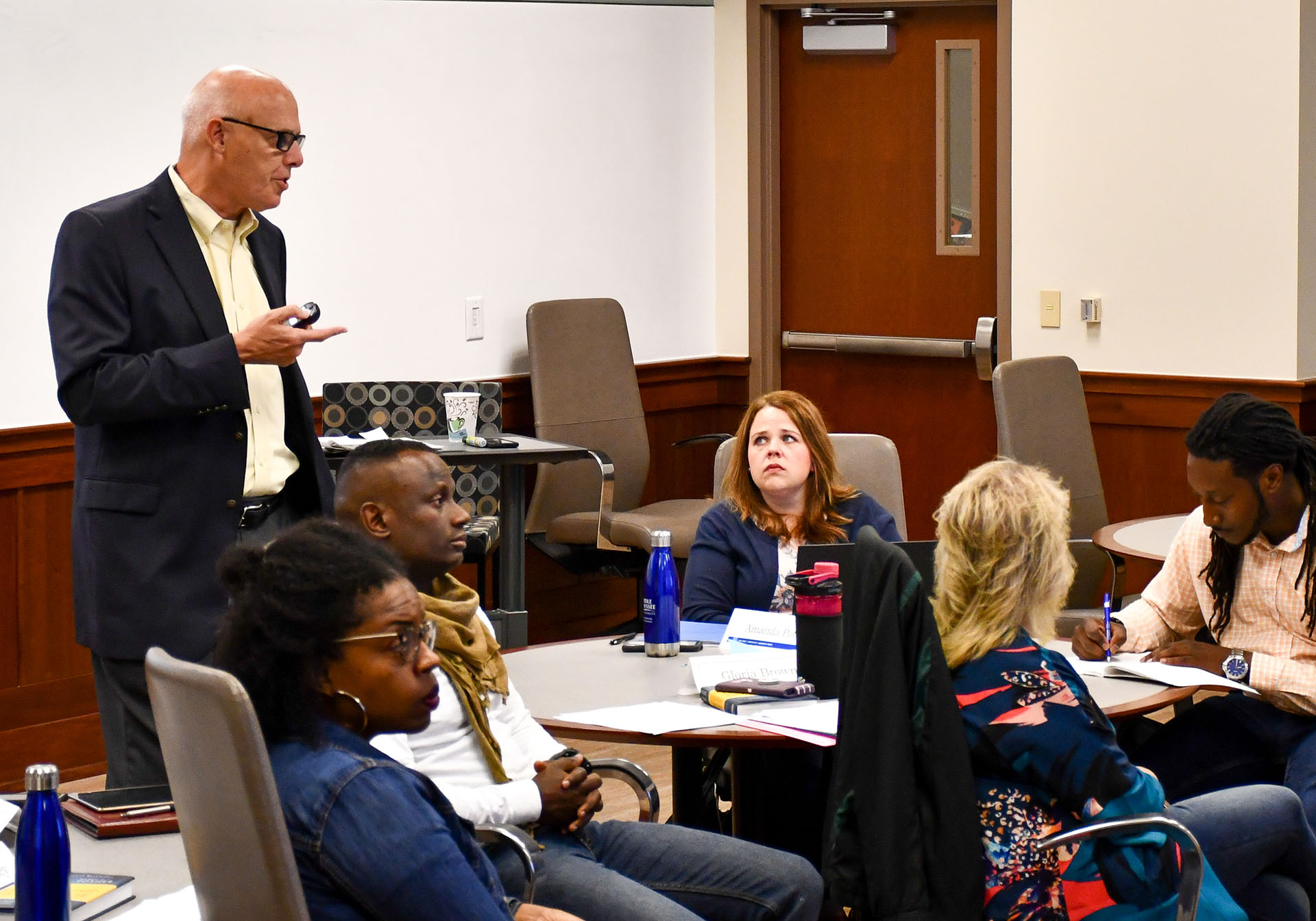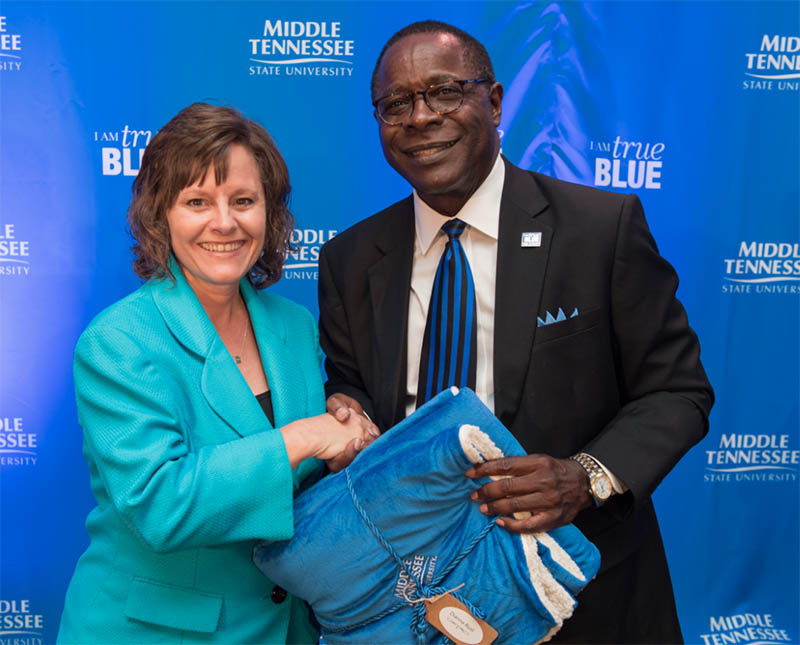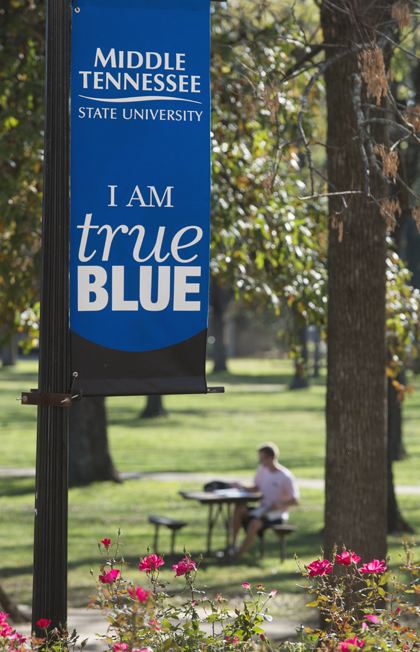
Integrated Studies
Prepare for a career in planning, managing, and providing legal, public safety, protective services, and homeland security.
Integrated Studies, Public Safety Concentration, B.S.
The interdisciplinary Public Safety concentration will provide an adult degree completion program to public safety professionals and will provide them with the opportunity to develop important knowledge and skills in crisis response, diversity, communication, and leadership.
MTSU standard admission requirements apply. The program is an interdisciplinary program utilizing courses from five academic departments within the concentration.
As part of the student learning outcomes of the program, the student will be able to identify and evaluate insights from multiple disciplines by applying the interdisciplinary research process and synthesizing connections between experiences outside the classroom and academic study. Finally, successful students will develop information literacy and accurately locate, evaluate, and synthesize information sources.
Elective course requirements for adult learners are often fulfilled through the Prior Learning Assessment (PLA) program, which evaluates college-level learning you may have gained through work, training, certifications, licensure, military, and other programs. Details about the program should be discussed with your advisor.
On average, a student in the PLA course yields 24 credit hours for a student. That saves the student from taking eight elective courses and more than $9,000. (Total based off 2021-2022 in-state tuition rates.) Details about the program should be discussed with your advisor.
News Briefs

LEAD 3010 (Leadership Skills and Development)
LEAD 3010 is a core class in the Public Safety concentration. It provides an examination of prominent theories, approaches, and a research-based understanding of the theoretical construct of leadership. Emphasis will be placed on the evolution of leadership theory and the contribution of research to the synthesis of historical leadership perspectives into contemporary leadership models.
"Students will explore and reflect on their personal leadership philosophy, as influenced by theory and personal experience," says Jim Bast, a faculty member in the Department of Management and instructor for LEAD 3010. "The leadership skills covered in this course are applicable in both public and private organizations."
This course is asynchronous (content available for a week at a time) over 7 weeks. This allows working adults to complete the coursework at their convenience, dealing with busy work and home schedules.

Dianna Rust and President McPhee
"We are excited to announce a new concentration in Public Safety which begins in Summer 2022," said Dianna Rust, professor in MTSU's Department of University Studies. "Our college has always been focused on serving the adult learner and this degree was built with adult learners in mind. It will be helpful to adults who work in public safety and related fields who want to pursue a bachelor's degree but need to still work full-time."
The degree can be completed entirely online and some of the courses will be offered in seven-week sessions so that you can concentrate on one class at a time. The program also provides adults an opportunity to gain credit for their prior learning, which can expedite reaching their goal of graduation. "Another feature is that the program includes courses from several departments so that students can receive a well-rounded foundation," she said.
Courses in the core range from leadership to communication to sociology. We want to recognize our partner departments whose faculty will be teaching in the concentration: Communication Studies, Health and Human Performance, Management, Sociology and Anthropology, and University Studies.
News Briefs
LEAD 3010 (Leadership Skills and Development)

LEAD 3010 is a core class in the Public Safety concentration. It provides an examination of prominent theories, approaches, and a research-based understanding of the theoretical construct of leadership. Emphasis will be placed on the evolution of leadership theory and the contribution of research to the synthesis of historical leadership perspectives into contemporary leadership models.
"Students will explore and reflect on their personal leadership philosophy, as influenced by theory and personal experience," says Jim Bast, a faculty member in the Department of Management and instructor for LEAD 3010. "The leadership skills covered in this course are applicable in both public and private organizations."
This course is asynchronous (content available for a week at a time) over 7 weeks. This allows working adults to complete the coursework at their convenience, dealing with busy work and home schedules.
Dianna Rust and President McPhee

"We are excited to announce a new concentration in Public Safety which begins in Summer 2022," said Dianna Rust, professor in MTSU's Department of University Studies. "Our college has always been focused on serving the adult learner and this degree was built with adult learners in mind. It will be helpful to adults who work in public safety and related fields who want to pursue a bachelor's degree but need to still work full-time."
The degree can be completed entirely online and some of the courses will be offered in seven-week sessions so that you can concentrate on one class at a time. The program also provides adults an opportunity to gain credit for their prior learning, which can expedite reaching their goal of graduation. "Another feature is that the program includes courses from several departments so that students can receive a well-rounded foundation," she said.
Courses in the core range from leadership to communication to sociology. We want to recognize our partner departments whose faculty will be teaching in the concentration: Communication Studies, Health and Human Performance, Management, Sociology and Anthropology, and University Studies.
Related Media

A college degree in public safety can lead you into a variety of fields. From disaster relief to working for local fire or police departments, these careers are important and rewarding. Potential careers include:
- Homeland Security Planner Emergency Management
- Law Enforcement
- Child protective services investigator
- Correctional Officer
- Military
- Disaster Preparedness
- Emergency Services Manager
- Fire Service Manager
- Chief Security Officer
- Emergency Medical Technician Occupational Health and Safety Specialist Social and Community Service Manager Dispatcher
- Social services worker
- Crisis manager
- Community Service Officer



Prior Learning Assessment
Finish Your Degree Faster by Getting Credit For What You Already Know
- Students may earn up to 60 hours—which equals two years of college credit—for what they already know
- Credit hours earned depend upon the individual student’s background and experience
There are numerous ways to earn college credit outside the traditional classrooms, and we will work with you to take advantage of all the methods that are right for you. Many adult students spend years in the workforce or military developing valuable skills, earning certifications, taking continuing education programs, and obtaining licenses for specific functions. At MTSU we have developed a means to turn this prior knowledge into college credit to complete a degree. View our PLA brochure here for more information.

CONTACT US

Please fill in the form below and we will contact you very soon













